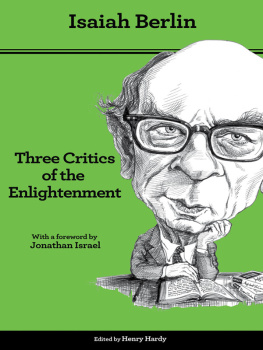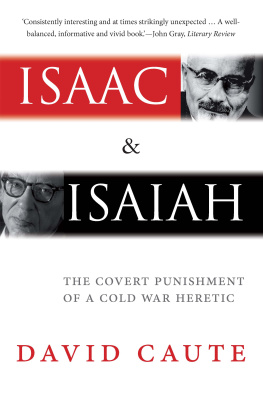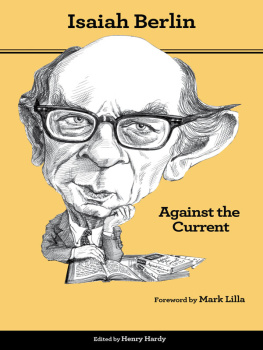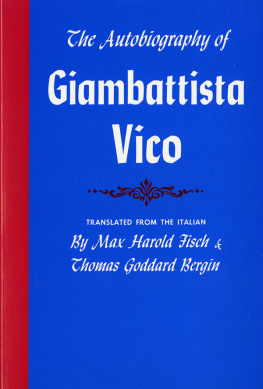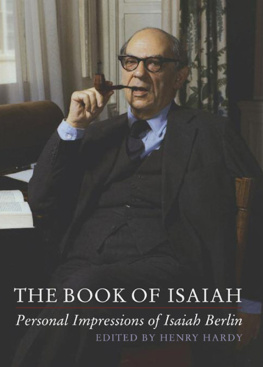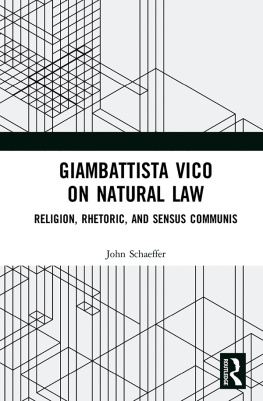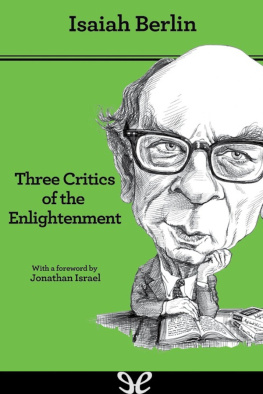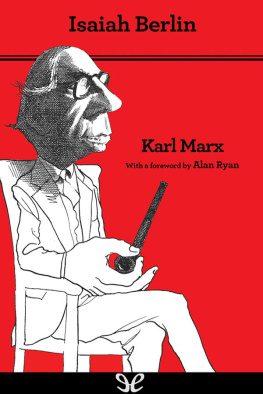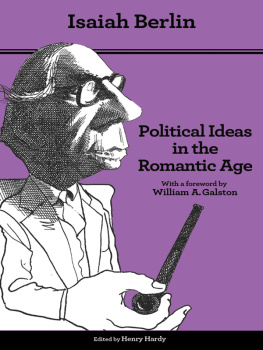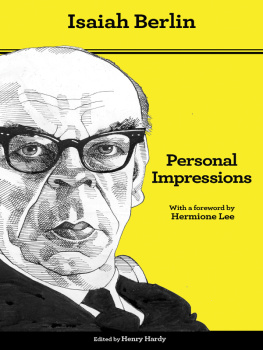Berlin Isaiah - Three Critics of the Enlightenment: Vico, Hamann, Herder, Second edition
Here you can read online Berlin Isaiah - Three Critics of the Enlightenment: Vico, Hamann, Herder, Second edition full text of the book (entire story) in english for free. Download pdf and epub, get meaning, cover and reviews about this ebook. year: 2013, publisher: Princeton University Press, genre: Science. Description of the work, (preface) as well as reviews are available. Best literature library LitArk.com created for fans of good reading and offers a wide selection of genres:
Romance novel
Science fiction
Adventure
Detective
Science
History
Home and family
Prose
Art
Politics
Computer
Non-fiction
Religion
Business
Children
Humor
Choose a favorite category and find really read worthwhile books. Enjoy immersion in the world of imagination, feel the emotions of the characters or learn something new for yourself, make an fascinating discovery.
- Book:Three Critics of the Enlightenment: Vico, Hamann, Herder, Second edition
- Author:
- Publisher:Princeton University Press
- Genre:
- Year:2013
- Rating:4 / 5
- Favourites:Add to favourites
- Your mark:
Three Critics of the Enlightenment: Vico, Hamann, Herder, Second edition: summary, description and annotation
We offer to read an annotation, description, summary or preface (depends on what the author of the book "Three Critics of the Enlightenment: Vico, Hamann, Herder, Second edition" wrote himself). If you haven't found the necessary information about the book — write in the comments, we will try to find it.
Isaiah Berlin was deeply admired during his life, but his full contribution was perhaps underestimated because of his preference for the long essay form. The efforts of Henry Hardy to edit Berlins work and reintroduce it to a broad, eager readership have gone far to remedy this. Now, Princeton is pleased to return to print, under one cover, Berlins essays on these celebrated and captivating intellectual portraits: Vico, Hamann, and Herder. These essays on three relatively uncelebrated thinkers are not marginal ruminations, but rather among Berlins most important studies in the history of ideas. They are integral to his central project: the critical recovery of the ideas of the Counter-Enlightenment and the explanation of its appeal and consequences--both positive and (often) tragic.
Giambattista Vico was the anachronistic and impoverished Neapolitan philosopher sometimes credited with founding the human sciences. He opposed Enlightenment methods as cold and fallacious. J. G. Hamann was a pious, cranky dilettante in a peripheral German city. But he was brilliant enough to gain the audience of Kant, Goethe, and Moses Mendelssohn. In Hamanns chaotic and long-ignored writings, Berlin finds the first strong attack on Enlightenment rationalism and a wholly original source of the coming swell of romanticism. Johann Gottfried Herder, the progenitor of populism and European nationalism, rejected universalism and rationalism but championed cultural pluralism.
Individually, these fascinating intellectual biographies reveal Berlins own great intelligence, learning, and generosity, as well as the passionate genius of his subjects. Together, they constitute an arresting interpretation of romanticisms precursors. In Hamanns railings and the more considered writings of Vico and Herder, Berlin finds critics of the Enlightenment worthy of our careful attention. But he identifies much that is misguided in their rejection of universal values, rationalism, and science. With his customary emphasis on the frightening power of ideas, Berlin traces much of the next centuries irrationalism and suffering to the historicism and particularism they advocated. What Berlin has to say about these long-dead thinkers--in appreciation and dissent--is remarkably timely in a day when Enlightenment beliefs are being challenged not just by academics but by politicians and by powerful nationalist and fundamentalist movements.
The study of J. G. Hamann was originally published under the title The Magus of the North: J. G. Hamann and the Origins of Modern Irrationalism. The essays on Vico and Herder were originally published as Vico and Herder: Two Studies in the History of Ideas. Both are out of print.
This new edition includes a number of previously uncollected pieces on Vico and Herder, two interesting passages excluded from the first edition of the essay on Hamann, and Berlins thoughtful responses to two reviewers of that same edition.
Berlin Isaiah: author's other books
Who wrote Three Critics of the Enlightenment: Vico, Hamann, Herder, Second edition? Find out the surname, the name of the author of the book and a list of all author's works by series.

